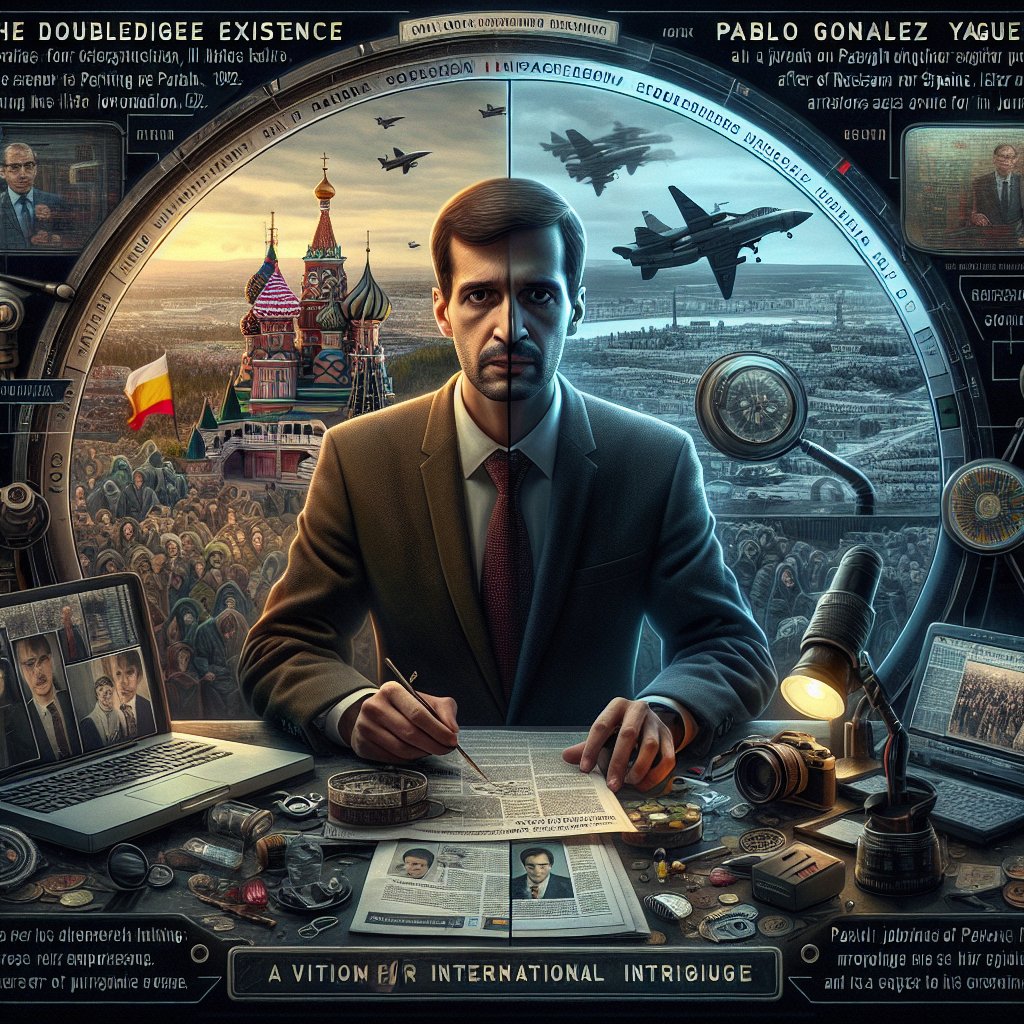Image created by AI
Pavel Rubtsov: Journalist, Star Wars Admirer, and Alleged Spy—Released in Russia-West Exchange
The recent prisoner exchange between Russia and the West—an event not witnessed since the times of the Cold War—has shone the spotlight on Pavel Rubtsov, also known as Pablo Gonzalez Yague. Rubtsov, a multi-faceted figure with Spanish and Russian citizenship, has intrigued many with his complex life story and alleged involvements in espionage.
The exchange that saw Rubtsov's release took place on August 2nd and included high-profile figures such as Wall Street Journal reporter Evan Gershkovich and Russian opposition politicians. Rubtsov was personally greeted by President Vladimir Putin upon his arrival in Moscow, signaling his significance to Russia.
Born in Moscow in 1982, Rubtsov enjoyed an international upbringing due to his parents' diverse backgrounds—his mother being Spanish and his father Russian. After his parents' divorce, a nine-year-old Rubtsov moved to Spain, where he would acquire a new name and citizenship but maintain his Russian roots.
A career in journalism led Rubtsov to cover significant events in the former Soviet Union regions, including conflicts like Crimea's annexation and the Nagorno-Karabakh war. His work garnered attention, and Rubtsov became a heralded figure in certain circles for his perceived dedication and charm.
However, his arrest in Poland on February 27, 2022, while reporting on Ukrainian refugees, thrust his life into a different light. Accused by Polish security services of working for Russia’s military intelligence and never admitting to espionage, Rubtsov became a topic of intrigue and controversy. Advocacy groups and fellow journalists criticized his imprisonment without trial, and his release was welcomed by Spain's largest journalistic organization.
Despite the elation in some quarters, his return has been met with mixed reactions. Fellow journalists and friends who once trusted Rubtsov feel betrayed, demanding answers that Rubtsov has yet to provide.
Investigative reports suggest that Rubtsov provided critical intelligence to Russia's GRU on the Russian opposition, leveraging personal relationships and information access to serve Moscow’s interests. With evidence suggesting his father also worked for Russian intelligence, Rubtsov's life appears to be a mirage of intersecting identities, useful for clandestine operations.
Experts in the field suggest that while journalism can be an effective cover for spying, operatives with journalistic guises are often complicated assets for intelligence agencies. Nevertheless, Rubtsov's prominence in the prisoner swap and President Putin's personal greeting underscore his value to the Kremlin.
Wlodzimierz Sokolowski, an author and former intelligence officer, notes that journalists are not typically ideal spies, given their propensity for public attention. But in Rubtsov's case, his attributes as a journalist might have served an intelligence-gathering purpose effectively.
Rubtsov's return opens a new chapter in his life, but the complete narrative of his dual identities—as a journalist and a possible spy—remains obscured by shadows of international espionage, raising questions about the often blurry line between media and intelligence in today's geopolitical landscape.










